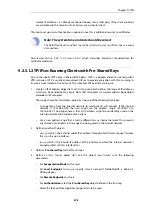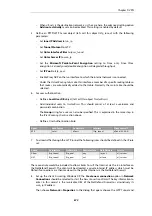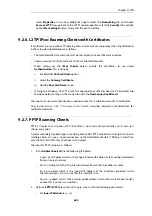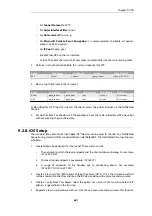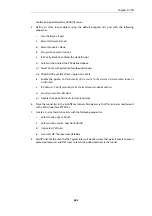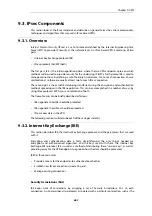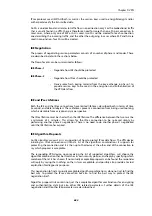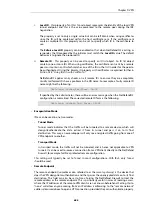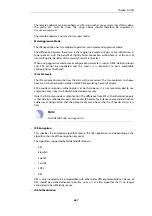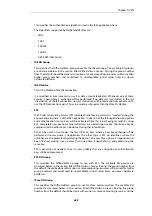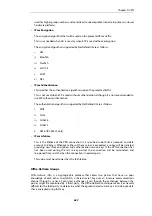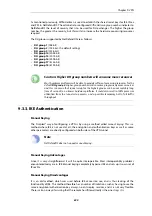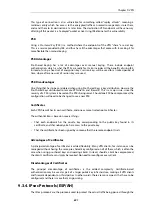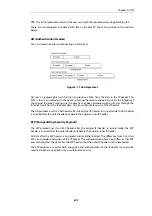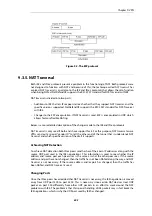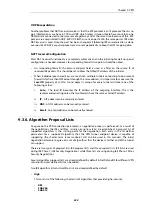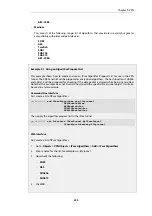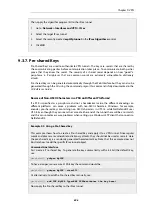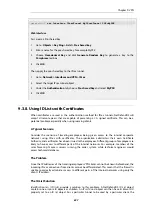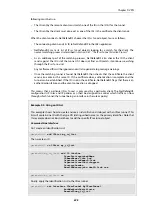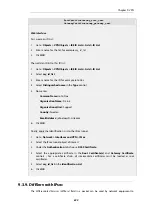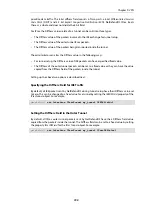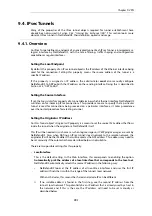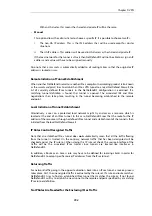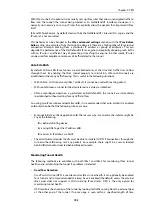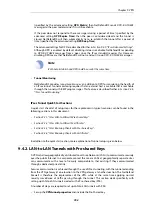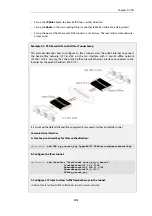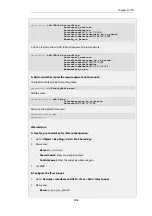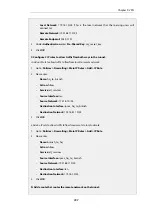
VPN. The actual protocols used and the keys used with those protocols are negotiated by IKE.
There are two protocols associated with IPsec, AH and ESP. These are covered in the sections
below.
AH (Authentication Header)
AH is a protocol used for authenticating a data stream.
Figure 9.1. The AH protocol
AH uses a cryptographic hash function to produce a MAC from the data in the IP packet. This
MAC is then transmitted with the packet, allowing the remote endpoint to verify the integrity of
the original IP packet, making sure the data has not been tampered with on its way through the
Internet. Apart from the IP packet data, AH also authenticates parts of the IP header.
The AH protocol inserts an AH header after the original IP header. In tunnel mode, the AH header
is inserted after the outer header, but before the original, inner IP header.
ESP (Encapsulating Security Payload)
The ESP protocol inserts an ESP header after the original IP header, in tunnel mode, the ESP
header is inserted after the outer header, but before the original, inner IP header.
All data after the ESP header is encrypted and/or authenticated. The difference from AH is that
ESP also provides encryption of the IP packet. The authentication phase also differs in that ESP
only authenticates the data after the ESP header; thus the outer IP header is left unprotected.
The ESP protocol is used for both encryption and authentication of the IP packet. It can also be
used to do either encryption only, or authentication only.
Chapter 9: VPN
692
Summary of Contents for NetDefendOS
Page 30: ...Figure 1 3 Packet Flow Schematic Part III Chapter 1 NetDefendOS Overview 30 ...
Page 32: ...Chapter 1 NetDefendOS Overview 32 ...
Page 144: ...Chapter 2 Management and Maintenance 144 ...
Page 284: ...Chapter 3 Fundamentals 284 ...
Page 392: ...Chapter 4 Routing 392 ...
Page 419: ... Host 2001 DB8 1 MAC 00 90 12 13 14 15 5 Click OK Chapter 5 DHCP Services 419 ...
Page 420: ...Chapter 5 DHCP Services 420 ...
Page 573: ...Chapter 6 Security Mechanisms 573 ...
Page 607: ...Chapter 7 Address Translation 607 ...
Page 666: ...Chapter 8 User Authentication 666 ...
Page 775: ...Chapter 9 VPN 775 ...
Page 819: ...Chapter 10 Traffic Management 819 ...
Page 842: ...Chapter 11 High Availability 842 ...
Page 866: ...Default Enabled Chapter 13 Advanced Settings 866 ...
Page 879: ...Chapter 13 Advanced Settings 879 ...

